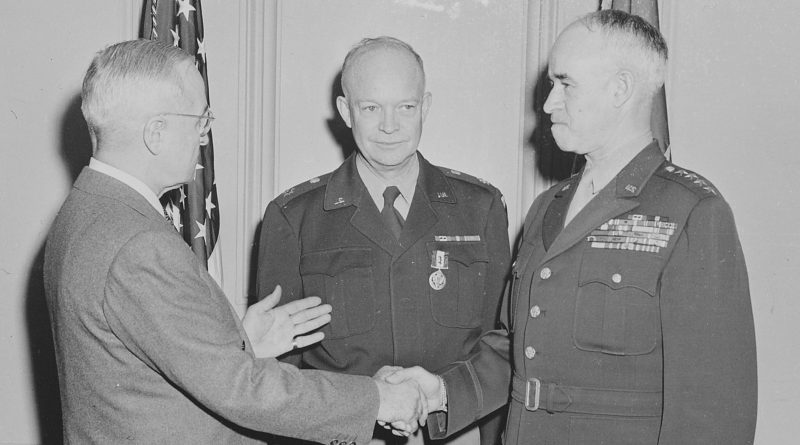August 11 in U.S. military history
1945: While American planes continue hammering Japanese targets, Secretary of State James Byrnes rejects the Japanese War Council’s surrender terms, which state the Emperor will remain in power. The Allies’ terms dictate that the Japanese people themselves would determine their own form of government and that the Emperor would be subject to the Supreme Allied Commander.
1949: President Harry Truman appoints Gen. Omar Bradley to the new position of Chairman of the Joint Chiefs of Staff. Bradley advises that the post-World War II Army had been weakened to the point that it “could not fight its way out of a paper bag,” but the Truman administration does not implement his recommendations. As a result, the United States military will enter the Korean War significantly understaffed and with outdated equipment.
1952: In western Korea, the First Marine Division takes Hill 122 — subsequently named “Bunker Hill” — and begins several days of bloody clashes with Chinese troops. The Marines, supported by tanks and and air strikes, repel numerous communist assaults and drive off the enemy. 48 of Col. Walter F. Layer’s men give their lives in defense of the hill, but inflict several thousand Chinese casualties.
1965: When deadly race riots break out across Los Angeles, 12,000 members of the California National Guard are deployed to the area to restore order.
1967: While on a patrol in South Vietnam’s Quảng Nam Province, Marine Lance Cpl. Roy M. Wheat accidentally steps on an enemy “Bouncing Betty” anti-personnel mine. When he hears the distinctive sound made by the triggered fuze, Wheat throws himself over the mine’s location and absorbs the blast with his body. For his actions, Wheat is posthumously awarded the Medal of Honor.
